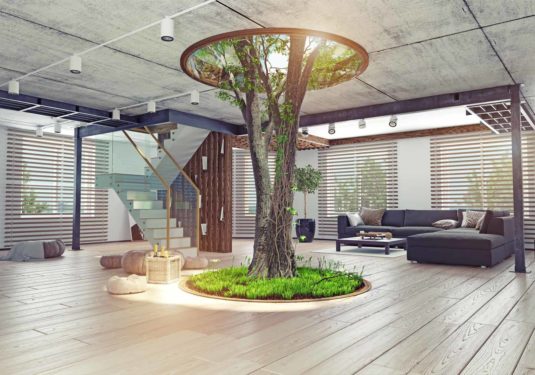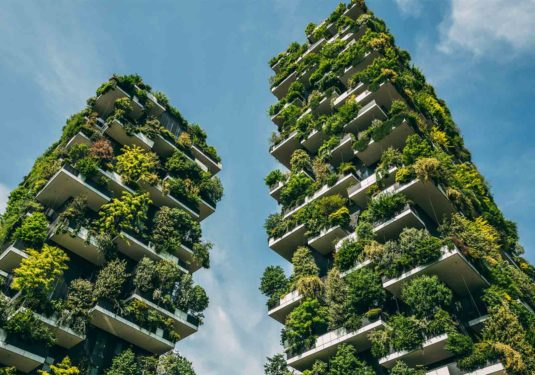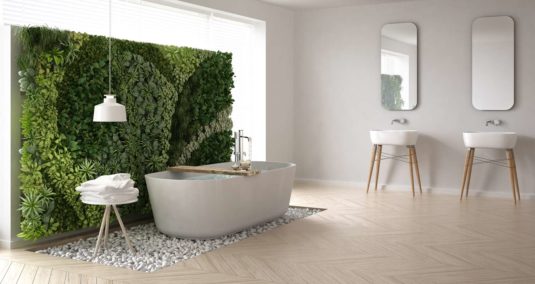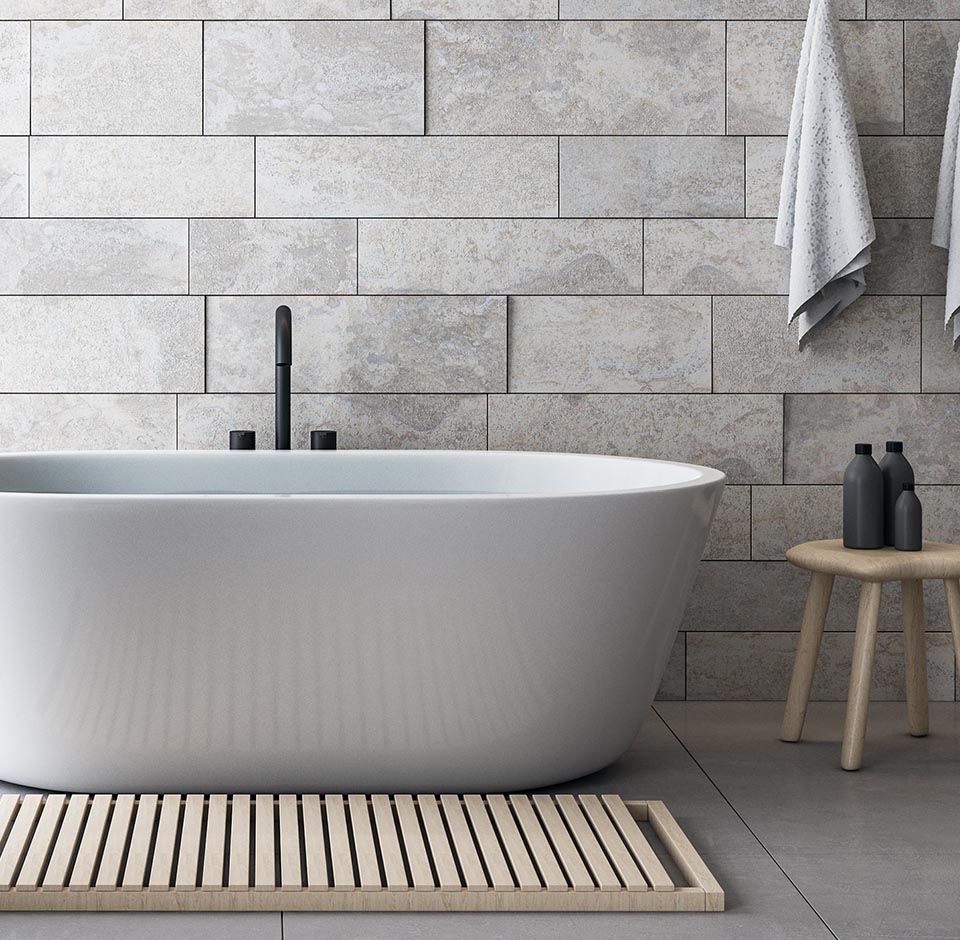Luxury without sustainability is nothing: Eco is the new luxury
The idea of hotels going green is not so new but until recently being eco did not appear to fit with the luxury end of the market. However, this is changing very rapidly and is driven in large part by the eco preferences of people who seek environmentally-friendly experiences on their travels. Responsibility meets enjoyment.
The green groundwork in the hospitality market has been laid over many years with some eco hotels founded more than three decades ago. The US Green Building Council has been accrediting hotel properties since 1993 while Leadership in Energy and Environmental Design (LEED) certification has grown steadily since 2000.


Five LEED criteria for hotels:
- Sustainable site development
- Water savings
- Energy efficiency
- Materials selection
- Indoor environmental quality
These are the focal points for newer high-end luxury properties. And since 2003, any hotel in the EU has been able to apply for the European Eco-label. Operators must meet strict minimum standards on environmental performance and health standards, including: use of renewable energy sources, reduction in energy and water consumption, reducing waste, environmental policy setting and the provision of non-smoking areas.
Eco conscious
Meanwhile, across the globe the focus on eco-friendly hotels has grown rapidly with a range of certification associations. But there is still a lingering sentiment that it is not possible to blend luxury with sustainability. Breathtaking vistas and amenities with opulence and extravagant services do not immediately conjure up thoughts of eco conscious planning.
But there is still a lingering sentiment that it is not possible to blend luxury with sustainability. Breathtaking vistas and amenities with opulence and extravagant services do not immediately conjure up thoughts of eco conscious planning.
That would be a mistake. At this high end of the global hospitality market, luxury hotels have been shifting their business strategies to sustainable development for 15 years and more.


Driven by the growing awareness of environmental damage and need to act, hotel groups have responded to consumer concerns about the impact of their operations on the planet. Many 5-star properties now have eco policies that promote sustainable construction materials, recycling waste, saving water and energy as well as protecting fragile ecosystems.
Minimum impact
At the same time, eco-friendly luxury hotels have been opened across the world to attract high-end guests seeking authentic as well as sophisticated experiences while seeking assurances that their stay has minimum possible impact on the environment. This is borne out by a global online study published by Nielsen, where two-thirds of respondents said they were willing to spend more on products and services from companies committed to positive environmental and social impact. The topline figure has grown impressively from 50 per cent in 2013.
Even more telling was the finding that younger generations are more attuned to this point of view. Almost 75 per cent of Millennials and Gen Z said they would be willing to pay extra for sustainable offerings, a 25 per cent rise from 2014.
Credit Suisse’s 2017 Global Investor report states that Millennials are driving sustainable practices and companies must deliver good social and environmental performance and engage in sustainable practices or their future growth could be at risk. And the Green Lodgings Trend Report last year showed that nearly a third of more than 2000 hotels in 46 countries said that guests’ feedback prompted them to take action.
Leading the way
The United Nations last year promoted the concept of sustainable tourism as key to helping communities develop, with three pillars of sustainable tourism:
- Economic- for example, employing local people
- Social – protecting rich cultural heritage and other initiatives
- Environmental – range of green policies
This broader focus meshes with green travellers who appreciate towel reuse and recycling but want a lot more from the owners of the property they choose to visit. They want to be assured that the hotel is helping to preserve the area it shares while having an exceptional experience.


The luxury eco hotels leading the way to sustainable business are dotted around the world but share similar visions and all are deeply committed to blending the imperative for profit with effective eco policies.
Energy monitoring
For example, the Ramada Eco Beach Resort in Australia has self-sustaining solar power and a water-recycling plant. Along with a full range of energy and water-saving initiatives it also gives guests the option to use energy monitoring systems and adjust consumption.
In Kenya, the award-winning Campi ya Kanzi (Camp of the Hidden Treasure) was built entirely with local materials that had fallen from trees and only employed local Maasai during construction. The lodge’s energy is sourced through solar panels, with solar boilers for hot water. And that scarce resource is harvested from rain using a special catchment system, with the facility to store up to 400,000 gallons.
Meanwhile, the Soneva Fushi resort is a pioneer in sustainable hospitality. It is located in the beautiful Baa Atoll, which is a Unesco World Biosphere Reserve and boasts one of the largest solar power plants in the Maldives.
Food is grown and sourced locally where possible and the resort recycles waste materials while at the same time it helps in the ecosystem preservation of with two nature reserves where turtles can nest.
Extending the eco-friendly boundaries, the resort has a ground-breaking initiative where world-renowned artists create valuable works of art from Maldives waste glass in the Glass Studio. Guests can watch or learn the art of glass blowing and participate in art exhibitions.
Water filtration


Also in the Maldives, the Six Senses luxury hotel and resort chain holds a Green Hotelier award for initiatives in reducing reduce waste, energy and water consumption as well as its support for the local community, and communication of its eco initiatives to guests. It features a water-filtration system that helped to replace of 1.09 million plastic bottles last year. The Six Senses brand has a policy of no plastic bottles with all water bottled on-site.
The luxury brand is committed to sustainability across all its properties and there is a Sustainability Fund at every resort that uses some revenues to support local community projects, for example, Six Senses properties in Vietnam. Six Senses also communicates its eco efforts through designated spaces called “Earth Labs”.
Six Senses Con Dao has partnered with the national park nearby to protect and advance a severely damaged coral reef system with guests offered the chance to help with the project. It also operate a turtle sanctuary.
Six Senses Ninh Van Bay also has a coral project, protecting a nearby reef and providing education on marine life, while guests experience swimming and snorkelling. Jobs are offered first to locals and there are water purification programmes for the community.


Carbon neutral
In French Polynesia, The Brando – inspired by former owner Marlon Brando’s eco vision – is wholly committed to sustainable tourism. It is near self-sustainable and carbon neutral and LEED platinum, the highest level of certification.
Located on the private island of Tetiaroa, the stunning property uses energy totally from renewable solar and biofuel sources. The Seawater Air Conditioning system pipes in deep, cold ocean water for conversion and use while rainwater is collected from roofs to supply all toilets, as well as the laundry service. The Brando also offers guests ecotechnology educational tours as well as those that focus on Polynesian culture, animal life and local coral reefs.
In a contrasting setting, the 1 Brooklyn Bridge luxury eco hotel In New York was developed on the principle that “those that travel the world also care about it”. Most of the furniture and interior was designed using local and reclaimed materials, including walnut from the Brooklyn Botanical Gardens and pine flooring in the restaurant from an old distillery.
The LEED-certified property has prioritised reducing waste, particularly single-use plastics with in-room filtered water dispensers. Native plants have been chosen for public and outdoor spaces while A rainwater tank beneath the hotel helps to irrigate Brooklyn Bridge Park during the city’s hot summers.
Its successful recent launch has encouraged plans for three new sustainable properties for the 1 Hotels brand.
Community support
With 29 lodges in iconic safari locations across Africa, the &Beyond brand is leader in sustainable tourism Energy use is reduced through efficient air conditioning and hot water systems, and water is bottled onsite in glass bottles.
It provides education, health care and orphan support to the local community and has provided access to water for 56,000 people in local communities along with 30 food gardens, and six commercial farms throughout Africa.
The &Beyond Phinda Private Game Reserve in South Africa is deeply committed to best eco practice and the company has made large investments in Rhinos Without Borders that help relocate threatened rhinos from South Africa to Botswana.
These are a few extraordinary examples of the rapidly developing luxury eco hotel sector that vividly show the level of commitment to environmental policies and best practice within a robust and sustainable commercial business sector.



